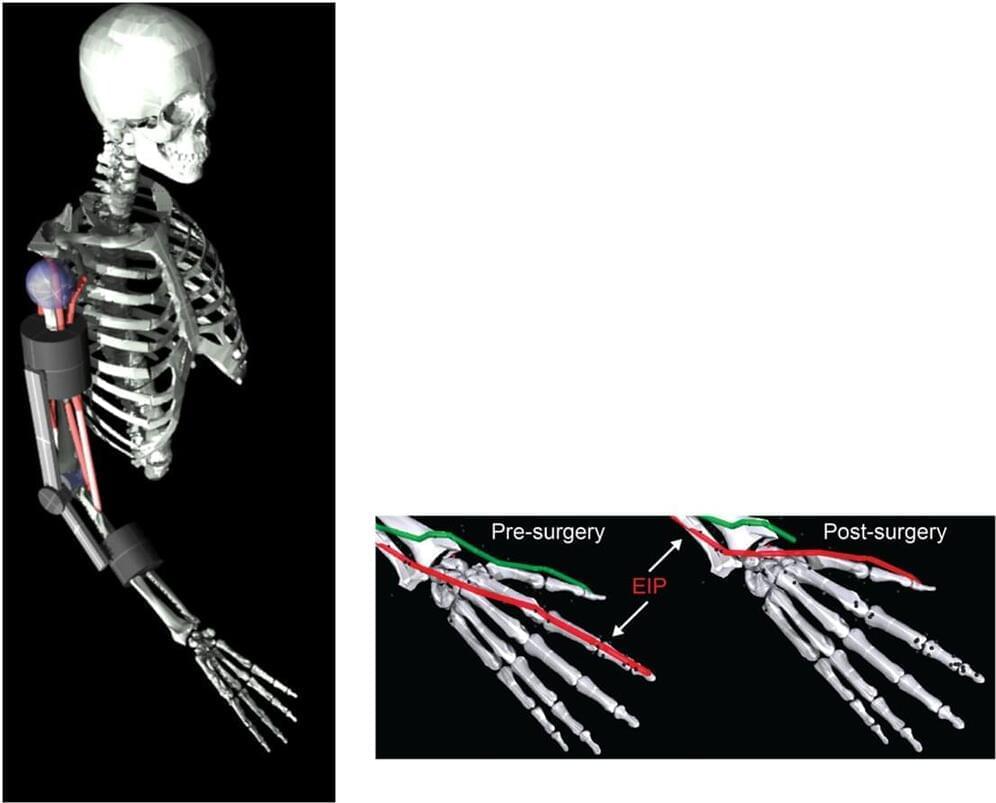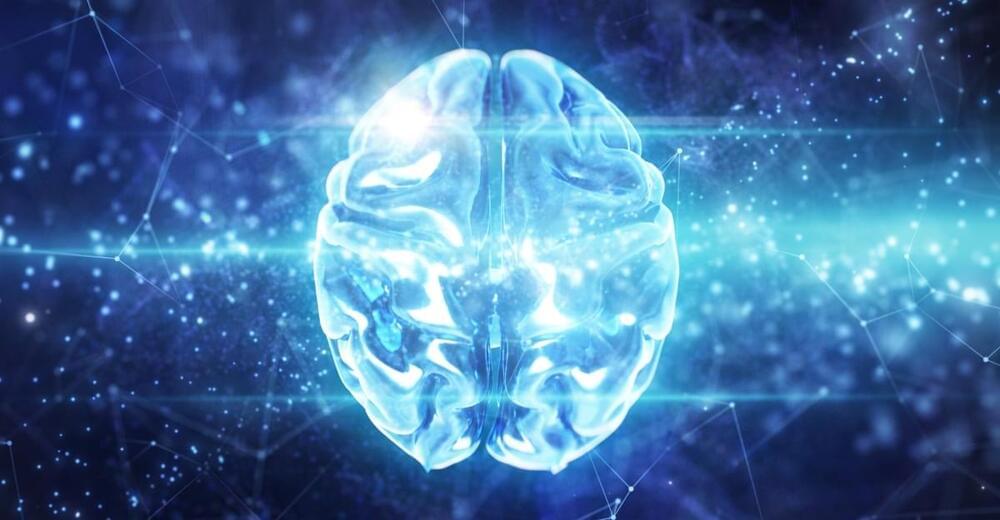One of the biggest challenges in a World Building competition that asked teams to imagine a positive future with superintelligent AI: Make it plausible.


The mainstream approach to driverless cars is slow and difficult. These startups think going all-in on AI will get there faster.
Company expects its robots to be doing your household chores in a decade.

Researchers at Meta’s Artificial Intelligence Research Lab (Facebook) in the U.S. and at the University of Twente’s Neuromechanical Modelling and Engineering Lab in the Netherlands (led by Prof.dr.ir Massimo Sartori), have co-developed the open-source framework MyoSuite, which combines advanced musculoskeletal models with advanced artificial intelligence (AI). The AI-powered digital models in MyoSuite can learn to execute complex movements and interactions with assistive robots, that would otherwise require long experimentations on real human subjects.
Modeling and simulation are now as important to human health technologies as they have been for the advancement of modern automotive industry. Prof. Massimo Sartori: “If we could predict the outcome of a robotic therapy beforehand, then we could optimize it for a patient and deliver a truly personalized and cost-effective treatment.”
MyoSuite supports the co-simulation of AI-powered musculoskeletal systems physically interacting with assistive robots such as exoskeletons. With MyoSuite you can simulate biological phenomena, e.g., muscle fatigue, muscle sarcopenia, tendon tear and tendon reaffirmation. Moreover, you can simulate how assistive robots could be designed and controlled to restore movement following impairment.

Predicting it now. 2030s there will be Tons of this, and not just chat bots of dead people, but making them seem alive, 24/7 in VR world meta whatever. There will probably be shops that cater to this and try and make it as close and realistic as possible, will probably mostly be underground.
The recent case of a man making a chatbot based on his deceased fiancée raises ethical questions: Is this something we want? property= description.
Robotic copy of a human hand still needs a lot of ummm work, and funding.
MIT researchers have created an interactive design pipeline that streamlines and simplifies the process of crafting a customized robotic hand with tactile sensors.
Typically, a robotics expert may spend months manually designing a custom manipulator, largely through trial-and-error. Each iteration could require new parts that must be designed and tested from scratch. By contrast, this new pipeline doesn’t require any manual assembly or specialized knowledge.
Akin to building with digital LEGOs, a designer uses the interface to construct a robotic manipulator from a set of modular components that are guaranteed to be manufacturable. The user can adjust the palm and fingers of the robotic hand, tailoring it to a specific task, and then easily integrate tactile sensors into the final design.


By 2025, the World Economic Forum estimates that 97 million new jobs may emerge as artificial intelligence (AI) changes the nature of work and influences the new division of labor between humans, machines and algorithms. Specifically in banking, a recent McKinsey survey found that AI technologies could deliver up to $1 trillion of additional value each year. AI is continuing its steady rise and starting to have a sweeping impact on the financial services industry, but its potential is still far from fully realized.
The transformative power of AI is already impacting a range of functions in financial services including risk management, personalization, fraud detection and ESG analytics. The problem is that advances in AI are slowed down by a global shortage of workers with the skills and experience in areas such as deep learning, natural language processing and robotic process automation. So with AI technology opening new opportunities, financial services workers are eager to gain the skills they need in order to leverage AI tools and advance their careers.
Today, 87% of employees consider retraining and upskilling options at workplaces very important, and at the same time, more companies ranked upskilling their workforce as a top-5 business priority now than pre-pandemic. Companies that don’t focus on powering AI training will fall behind in a tight hiring market. Below are some key takeaways for business leaders looking to prioritize reskilling efforts at their organization.
❤️ Check out Fully Connected by Weights & Biases: https://wandb.me/papers.
📝 The paper “Human Dynamics from Monocular Video with Dynamic Camera Movements” is available here:
https://mrl.snu.ac.kr/research/ProjectMovingCam/MovingCam.html.
❤️ Watch these videos in early access on our Patreon page or join us here on YouTube:
- https://www.patreon.com/TwoMinutePapers.
- https://www.youtube.com/channel/UCbfYPyITQ-7l4upoX8nvctg/join.
🙏 We would like to thank our generous Patreon supporters who make Two Minute Papers possible:
Aleksandr Mashrabov, Alex Balfanz, Alex Haro, Andrew Melnychuk, Angelos Evripiotis, Benji Rabhan, Bryan Learn, B Shang, Christian Ahlin, Eric Martel, Geronimo Moralez, Gordon Child, Ivo Galic, Jace O’Brien, Jack Lukic, Javier Bustamante, John Le, Jonas, Jonathan, Kenneth Davis, Klaus Busse, Lorin Atzberger, Lukas Biewald, Matthew Allen Fisher, Michael Albrecht, Michael Tedder, Nevin Spoljaric, Nikhil Velpanur, Owen Campbell-Moore, Owen Skarpness, Rajarshi Nigam, Ramsey Elbasheer, Steef, Taras Bobrovytsky, Ted Johnson, Thomas Krcmar, Timothy Sum Hon Mun, Torsten Reil, Tybie Fitzhugh, Ueli Gallizzi.
If you wish to appear here or pick up other perks, click here: https://www.patreon.com/TwoMinutePapers.
Thumbnail background design: Felícia Zsolnai-Fehér — http://felicia.hu.
Károly Zsolnai-Fehér’s links:
One of the things I really enjoy is bacon sandwiches, but that’s not what I wanted to talk about here. Another thing I enjoy is watching a startup company evolve from being a twinkle in its founder’s eye to purveying its first product.
Way back in the mists of time we used to call May 2020 (which is two long years ago as I pen these words), Jim Turley wrote a column on the topic of Creating the Universal Processor here on EE Journal. The focus of this column was a new type of processor called Prodigy that was under development by a startup called Tachyum.
As Jim said at that time with respect to the folks at Tachyum: “Their goals are nothing if not audacious. Prodigy will be faster than Intel’s Xeon but consume one-tenth the power. It will have 4× lower cost of ownership (TCO) than current server processors. It will occupy less silicon than an ARM design. It will perform both AI and hyperscale server workloads with equal aplomb. A single version of the chip will scale between 16 and 128 cores, all in the same 6400-ball package. And it will be cheaper than Intel or AMD chips by a factor of three. That last one shouldn’t be hard to achieve. The others? We’ll have to wait and see.”